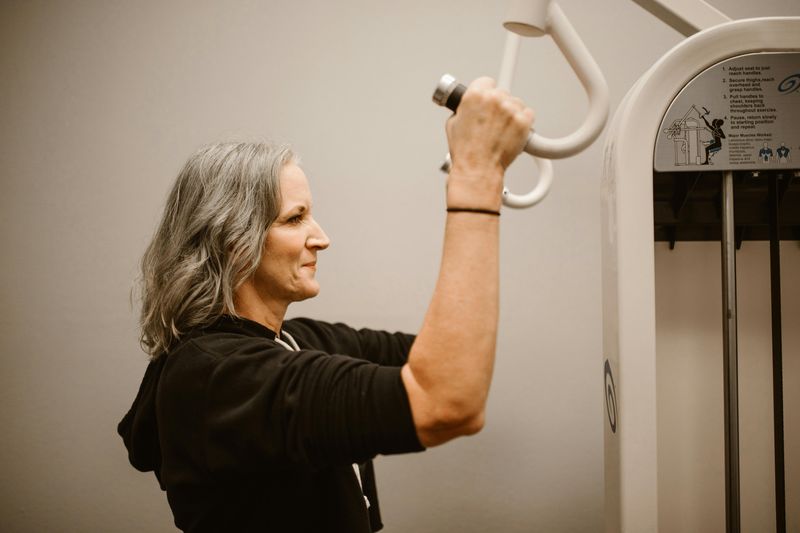30 Possible Realities Solo Agers Without a Family Could Face

Let’s get one thing straight: not everyone’s retirement dream includes grandkids, a family compound, or group vacations with in-laws. Some of us are aging solo—by choice or by circumstance—and that reality comes with its own unique set of perks, problems, and plot twists.
I’ve rounded up 30 possible realities solo agers without a family might face—some funny, some frustrating, and a few that might surprise you. Whether you’re already on this path or just starting to think about it, this list isn’t here to scare you—it’s here to get real, maybe make you laugh, and help you feel a little less alone.
1. Living on Your Own Terms

Imagine waking up every morning and knowing that your day is yours and yours alone. You have the freedom to choose how you spend it, without the need to compromise or explain yourself to anyone else. This sense of autonomy can be incredibly liberating. However, it also means taking full responsibility for your choices and being prepared to face the consequences alone.
This self-directed lifestyle demands a certain level of discipline and foresight. You become your own decision-maker, your own safety net. Embracing this independence means being proactive about what you want your life to look like.
Aging solo allows you to craft a life rich with personal meaning and joy, echoing your unique desires and passions.
2. Facing Medical Emergencies Alone

Being prepared for a medical emergency is crucial when you’re on your own. Without immediate family around, you may find yourself in a situation where you need to make quick decisions about your health. This can be daunting, but it’s also empowering to know you’re capable of handling such situations.
Consider setting up a medical alert system or keeping emergency contacts easily accessible. It’s about ensuring that you’re not isolated in times of need.
While there may be anxiety involved, it’s comforting to remember that you have the capability to act decisively. Preparing for these moments in advance can provide peace of mind and confidence in your own resilience.
3. Managing Finances Independently

Handling your finances alone can be both a challenge and an opportunity. Without a partner to share the financial load, you’re responsible for every aspect of your financial well-being. This involves budgeting, planning, and saving for the future.
Taking charge of your financial health means educating yourself on investments, retirement plans, and potential risks. The key is to be proactive rather than reactive, ensuring your money works for you.
This journey isn’t without its hurdles, but it’s empowering to know that you are in full control of your financial destiny. With thoughtful planning, financial independence can lead to a secure and fulfilling life.
4. Rediscovering Hobbies and Passions

With more time to yourself, you have the wonderful opportunity to rediscover old hobbies or develop new ones. Whether it’s gardening, painting, or diving into a new book, these activities can bring immense joy and purpose.
Your hobbies are more than just pastimes; they’re avenues to express yourself and explore your creativity. They can become a source of comfort and happiness, filling your days with meaning.
Don’t be afraid to try something new or revisit what you once loved. This is your time to enjoy what truly makes you happy, to nurture your soul, and to find fulfillment in everyday moments.
5. Socializing Without a Partner

Socializing solo can have its own set of challenges and rewards. Without a partner by your side, you might initially feel a bit out of place at social events. However, it also opens up opportunities to meet new people and forge meaningful connections.
Being on your own allows you to navigate social circles with a fresh perspective. You’re free to engage with those who genuinely interest you and to explore new friendships without compromise.
While it might take some initial bravery, the rewards of forming these new connections can be incredibly enriching. It’s a chance to broaden your horizons and expand your social network, all on your own terms.
6. Planning for Long-term Care

Planning for long-term care is a reality that solo agers must face head-on. With family not always nearby, it’s important to have a plan in place for your future health and living arrangements. This ensures that your needs will be met as you age.
Start by researching various care options and considering what aligns best with your lifestyle and preferences. Whether it’s assisted living, in-home care, or something else, knowing your options is crucial.
Taking charge of these decisions early on gives you peace of mind and control over your future. It’s about making sure your later years are as comfortable and fulfilling as possible, according to your own wishes.
7. Traveling Solo

Traveling alone can be both an adventure and a test of courage. Without a travel companion, the experience is entirely your own, and you can immerse yourself fully in the places you visit.
The freedom to choose your itinerary and explore new cultures at your own pace is exhilarating. It’s a chance to step out of your comfort zone and embrace the world on your terms.
While there may be challenges, such as navigating unfamiliar places solo, the experience can be incredibly rewarding. You’ll gain confidence, self-reliance, and a collection of unforgettable memories that are uniquely yours.
8. Facing Loneliness

Loneliness is a reality that many solo agers might encounter. Without family close by, there can be moments when you feel isolated or detached from the world around you.
It’s okay to acknowledge these feelings; they’re a natural part of the human experience. Finding ways to connect with others, whether through community groups, volunteer work, or social events, can help mitigate these feelings.
Remember that being alone doesn’t have to equate to being lonely. Cultivating a rich social life and maintaining meaningful connections are vital for your emotional well-being, helping turn solitude into an opportunity for self-reflection and personal growth.
9. Celebrating Holidays Alone

Holidays can be a mixed bag of emotions when you’re on your own. Without family around, you might miss the traditional gatherings and shared celebrations. However, this also presents a chance to create your own unique traditions.
Consider hosting a friends’ gathering or volunteering your time to help those in need. These activities can bring warmth and joy to the holiday season.
Ultimately, it’s about finding ways to make the holidays meaningful for you, whether it’s through new traditions or embracing the quiet moments. Holidays can still be joyful and rewarding, even when celebrated solo.
10. Pursuing Lifelong Learning

The pursuit of knowledge doesn’t have to end with age. As a solo ager, you have the freedom to continue learning, exploring subjects that pique your interest or skills you’ve always wanted to acquire.
Whether it’s taking a local class, joining online groups, or attending lectures, lifelong learning can keep your mind sharp and engaged. It’s a way to meet like-minded individuals and form new friendships.
Embrace this opportunity to grow intellectually and socially. The joy of learning and self-discovery can bring fulfillment, enrich your life, and keep your curiosity thriving throughout your years.
11. Creating a Legacy

Creating a legacy isn’t just about having a family to inherit your stories and values. It’s about leaving your mark on the world in a way that feels meaningful to you.
Whether through writing, art, or community contributions, you have the opportunity to share your experiences and wisdom. This process can be deeply rewarding, offering a sense of purpose and fulfillment.
Think about how you want to be remembered and take steps to craft that legacy. Your story matters and deserves to be told, impacting others in ways you might not even imagine.
12. Staying Physically Active

Maintaining physical health is vital for solo agers. Without someone to remind you to stay active, it’s up to you to incorporate exercise into your routine.
Regular activity not only boosts your physical health but also improves mental well-being. Whether it’s jogging, yoga, or dance, find something you enjoy that keeps you moving.
Staying active helps you feel energized and capable, enhancing your quality of life as you age. It’s all about finding the joy in movement and making it a regular part of your day-to-day routine.
13. Building a Support Network

Building a support network is essential when you’re aging independently. It’s about surrounding yourself with a community that uplifts and supports you.
This might involve joining clubs, attending local events, or simply reaching out to neighbors and friends. Having people you can rely on adds a layer of security and comfort to your life.
Cultivating these relationships ensures you’re not alone in facing life’s challenges. Your support network becomes your chosen family, offering companionship and assistance when you need it most.
14. Facing Ageism

Ageism is a societal issue that solo agers might face more noticeably. Without a partner to share these experiences, it can feel particularly personal.
It’s crucial to stand firm against stereotypes and advocate for yourself and others. Engage in conversations that challenge perceptions and highlight the value that older individuals bring to society.
The key is to remain confident in your abilities and contributions. By doing so, you not only empower yourself but also pave the way for future generations to be seen and heard, fostering a more inclusive world.
15. Adapting to Technology

Technology evolves rapidly, and staying up-to-date is essential for solo agers. Embracing digital tools can enhance communication, access to services, and overall quality of life.
From video calls with friends to online shopping and digital health tracking, technology offers convenience and connectivity. It’s worth investing time in learning and adapting to these advancements.
While it can be challenging, mastering new technology keeps you connected and engaged with the world. It’s a vital skill that opens up endless possibilities for maintaining an active and connected lifestyle.
16. Exploring Spirituality

Exploring spirituality can become a profound journey for solo agers. Without familial influence, you have the freedom to decide what spirituality means to you and how it fits into your life.
Whether through meditation, prayer, or nature walks, find practices that resonate with your beliefs and values. These activities can offer comfort, clarity, and a deeper understanding of yourself and the world around you.
Spiritual exploration is a personal experience that nurtures your soul and provides a sense of peace and fulfillment, enhancing your solo aging journey.
17. Finding Joy in Solitude

Finding joy in solitude is a beautiful aspect of aging solo. Without the distraction of others, you have the opportunity to savor quiet moments and connect with yourself on a deeper level.
This isn’t about feeling lonely; it’s about embracing the peace that comes with being alone at times. Enjoying your own company can be rejuvenating and enlightening.
Discover activities that enrich your solitude, whether it’s reading, writing, or simply enjoying nature. These moments become a cherished part of your routine, offering balance and harmony in your life.
18. Facing Unpredictable Life Changes

Life is full of surprises, and solo agers might find themselves navigating these changes without family support. Whether it’s a career shift, health challenge, or relocation, these moments test your adaptability.
Having a flexible mindset and being open to change can help you manage these transitions with grace and resilience.
While the journey can be daunting, remember that you’ve built the strength to face it head-on. These experiences bring growth and new opportunities, reinforcing your independence and capability.
19. Volunteering and Giving Back

Volunteering provides a sense of purpose and connection for solo agers. Without family obligations, you have the freedom to dedicate time to causes you care about.
Engaging in volunteer work not only benefits the community but also enriches your own life. It provides a platform to meet new people, learn new skills, and make a positive impact.
This is your chance to give back and contribute meaningfully to society, fostering a sense of fulfillment and belonging.
20. Navigating Grief Alone

Grief is a personal journey, and facing it alone can be particularly challenging. Without immediate family support, it’s essential to find ways to work through these emotions.
Consider seeking support groups or therapy to help navigate this difficult time. Sharing your experiences with others who understand can be incredibly healing.
Remember that it’s okay to grieve at your own pace. Allow yourself the space and time to process your feelings, knowing that healing is a journey, not a destination.
21. Maintaining a Healthy Diet

Eating well is crucial for maintaining health and vitality as a solo ager. Without someone to share meals with, it can be easy to fall into convenient but unhealthy habits.
Prioritizing a balanced diet helps keep your energy levels up and supports overall well-being. Experiment with new recipes or join cooking classes to make healthy eating enjoyable.
Taking charge of your nutrition empowers you to live a healthier life, ensuring you’re well-equipped to enjoy the adventures and opportunities that come your way.
22. Appreciating Small Joys

Life’s simple pleasures often bring the greatest joy, especially when you’re solo. Without the distractions of a bustling household, you can truly appreciate the small moments.
Whether it’s the scent of a flower or the warmth of sunlight, these experiences enrich your daily life, bringing happiness and contentment.
Take time to savor these fleeting moments. They’re a reminder of the beauty and wonder in everyday life, encouraging mindfulness and gratitude.
23. Building Emotional Resilience

Emotional resilience is a valuable trait for solo agers. Without a partner to lean on, it’s important to cultivate inner strength to navigate life’s ups and downs.
Developing coping strategies and recognizing your emotions helps you face challenges with confidence. Consider practices like mindfulness or journaling to nurture your emotional well-being.
By building resilience, you foster a sense of independence and stability, equipping yourself to handle whatever life throws your way.
24. Handling Household Responsibilities

Managing a household can be a daunting task when you’re on your own. Without someone to share the load, every responsibility falls on your shoulders.
Mastering basic home maintenance skills not only saves you money but also boosts your confidence. Whether it’s fixing a leaky faucet or organizing your space, these tasks become empowering when tackled independently.
Approach these responsibilities with a proactive mindset. They’re an opportunity to learn new skills and take pride in your self-sufficiency, making your home truly your own.
25. Embracing Spontaneity

Living solo means you have the freedom to embrace spontaneity. Without obligations to others, you can seize the moment and make impromptu decisions.
Whether it’s a last-minute road trip or trying something new, spontaneity brings excitement and joy to your life. It’s about saying yes to opportunities and experiences that catch your fancy.
This sense of freedom is invigorating, offering a fresh perspective on life. Embrace these spontaneous moments as they arise, and let them add sparkle to your everyday routine.
26. Preserving Personal Autonomy

Personal autonomy is a cherished aspect of solo aging. Without the need to compromise, you have complete control over your life decisions.
This autonomy comes with the responsibility of making informed choices. It’s about listening to your own needs and desires, ensuring they’re met on your terms.
Celebrate this freedom by making decisions that align with your values and aspirations. This is your life to live as you see fit, a testament to your independence and self-awareness.
27. Coping with Unexpected Changes

Change is inevitable, and solo agers often face unexpected transitions. Without family to cushion these shifts, adapting becomes a personal undertaking.
Whether it’s moving to a new home or adapting to lifestyle changes, handling these transitions requires flexibility and courage.
Keeping a positive outlook helps navigate these changes with grace. It’s about embracing the new while honoring what you’ve left behind, allowing you to grow and flourish.
28. Fostering New Friendships

Fostering new friendships is critical for maintaining a vibrant social life. Without a built-in family circle, you have the freedom to create diverse and meaningful connections.
Engage in activities that interest you where you can meet people with similar passions. These friendships enrich your life, offering companionship and shared experiences.
Cherish these connections, as they bring joy and warmth to your solo journey. Your friends become your chosen family, adding love and laughter to your days.
29. Nurturing Inner Peace

Nurturing inner peace is an ongoing process for solo agers. Without external distractions, you have the space to focus on your emotional and spiritual well-being.
Practices like meditation, yoga, or spending time in nature cultivate a sense of calm and balance. These moments of tranquility are essential for maintaining a positive mindset.
Embrace this opportunity to connect deeply with yourself and find harmony in your surroundings. Inner peace becomes a guiding force, supporting you as you navigate the solo aging journey.
30. Celebrating Personal Achievements

Celebrating personal achievements is an empowering aspect of solo aging. Without a partner to share these moments, it’s important to recognize and honor your own successes.
Whether it’s completing a project, learning a new skill, or reaching a personal goal, take the time to celebrate your milestones.
These achievements are a testament to your hard work and determination, offering a sense of pride and fulfillment. They remind you of your capabilities and inspire you to continue striving for personal growth.
